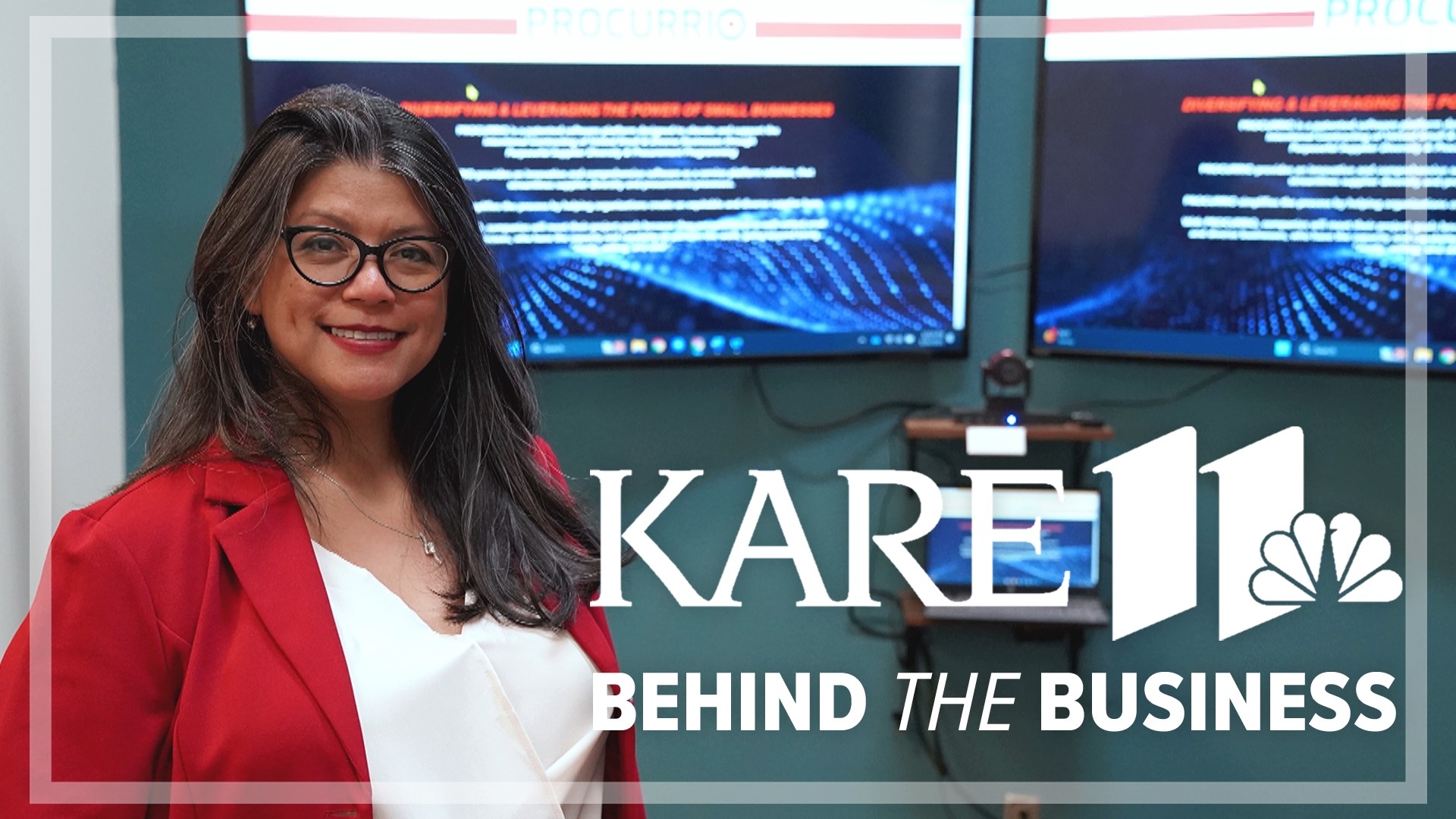ST PAUL, Minnesota — The Infrastructure Investment and Jobs Act is expected to bring about $7.4 billion to Minnesota to improve everything from roads and bridges to broadband.
It's big money that companies will be bidding on to do the work and one example of future contracting opportunities in the state. But who gets those gigs?
"The playing field is still not level," said R. Lynn Pingol, CEO of MaKee Company (MKC) in St. Paul.
The strategic consulting company works closely with BIPOC and women entrepreneurs.
"I grew a Black, Indigenous, People of Color and women ecosystem for the subcontracting community. Over a course of three years, we assisted a little over 200 predominantly Black and brown-owned businesses and about 127 of them achieved $42 million in contracts," Pingol said.
The Department of Transportation (DOT) created in the 1980s, the Disadvantaged Business Enterprise (DBE) program to open up opportunities in contracting for BIPOC and women-owned businesses.
"The (DBE) program is designed to remedy ongoing discrimination and the continuing effects of past discrimination in federally-assisted highway, transit, airport, and highway safety financial assistance transportation contracting markets nationwide," according to DOT's website.
But Pingol believes much more work needs to be done to increase equity in procurement (the purchasing of goods and services) and contracting (the mechanism used to buy the goods and services).
The Minneapolis/St. Paul Business Journal reports that in the state, just 2% of contracting dollars in fiscal year 2020 went to BIPOC-owned businesses, according to Department of Administration data.
The Minnesota Department of Transportation also has DBE participation goals that it has not reached, at least in the past decade, according to the MnDOT Uniform Report of DBE Awards/Commitments and Payments.


"We have primes, which is your big general contractors, that are getting contracts from government agencies. Government agencies, if it's a federally funded project, will set a goal of 6%, 8%, minority participation. But if you don't meet the goal because it's aspirational, you just get to submit a letter of good faith effort saying you tried your darndest. That's not enough. We have to go beyond what good faith effort is," Pingol said. "How do we find those that are ready, willing and able? There are directories that exist. Am I a fan of them? No. Because it's like a glorified resume search list, like monster.com."
It led to Pingol inventing a software as a service (Saas) platform called PROCURRIO.
Currently, companies have procurement codes and will get invitations to bid on projects based on those codes. But according to Pingol, the process is labor-intensive and not specific enough. For example, "You have to go through a 1,000-page document to see if you have any line items...only to learn after going through it for two hours that they want a bridge built and you don't build bridges," Pingol explained.
PROCURRIO is able to make searching more specific and intentional.
"We created the system to be full service so that they can actually reply and say, 'I want to bid on these trees. Send me the schematics...' As a small business, I can go bid on it, come back to the system, submit my bid, get it reviewed. You, as the buyer, will then either accept the proposal or deny it. If you deny it, it tells you, 'Well, your price is too high.' It will make a recommendation to the entrepreneur that, 'Hey, your price came in too high,'" Pingol said.
The software platform helps streamline bidding for private and public contracts while also providing support for small businesses navigating the process. The focus is specifically in helping streamline finding BIPOC, women and veteran-owned businesses.
Pingol said they are also vetting the entrepreneurs, adding, "They are vetted, ready, willing and able. It's daring the system to say, 'No' when I've got you packaged up in a bow. So think LinkedIn on steroids."
Pingol became a patent holder last month with help from LegalCORPS, which provided free legal assistance for her patent work.


She said her kids, Makayla and Keegan Rhiner, were the ones who encouraged her to pursue launching her consulting company. Then Makayla gave her the idea to pursue a patent.
"We actually submitted the preliminary application together and they said, 'Yeah, this is okay for patent pending stuff' and then she was murdered in Las Vegas in 2017," said Pingol.
Makayla was 21 years old. Pingol shelved the idea for more than two years before returning to it.
"My daughter's birthday was May 8. Received this patent on May 9. It's a bittersweet success. But I got an angel up there that's watching and that's how I see it," Pingol said. "At the end of the day... her persistence, and Keegan picking up the mantle from where she left off, brought it together."
PROCURRIO is currently in phase two with the goal of launching by early 2024.
Know a local business we should feature for our Behind the Business segment? Email Heidi Wigdahl at hwigdahl@kare11.com.
Watch more Behind the Business:
Watch all of the latest stories from Behind the Business in our YouTube playlist:

